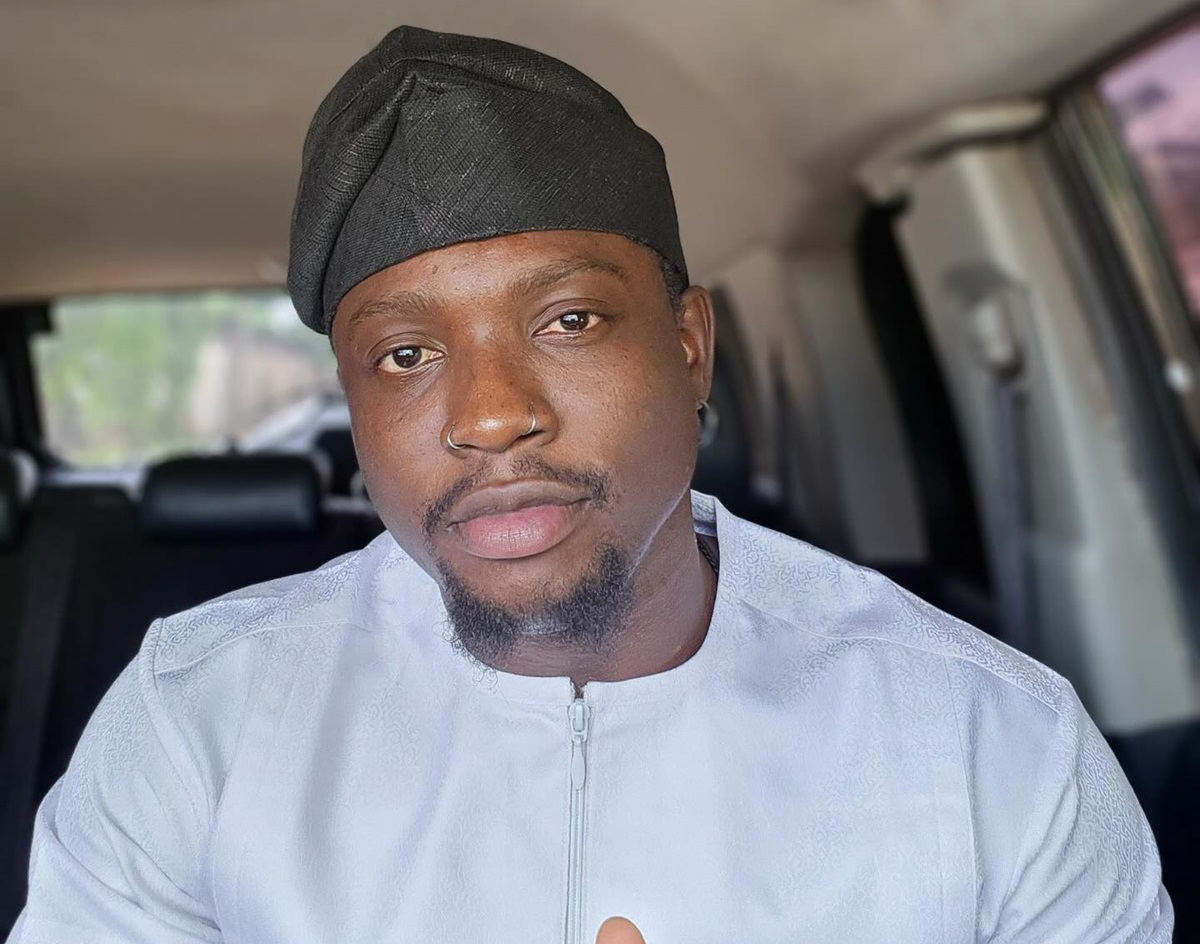
Her journey from a value-driven upbringing to excelling in a male-dominated field epitomizes resilience, faith, and a commitment to integrity. In this exclusive conversation, she shares her “dare to dream” story, her passion for uplifting others, and how her faith continues to shape her legacy.
ARC. DOOSHIMA YEMISI SUSWAM FOUNDER/CEO ALL PURPOSE SHELTER LTD AND FORMER FIRST LADY OF BENUE STATE.
Q: Can you share a bit about your early beginnings and how they shaped your passion for architecture and leadership? Were there any defining moments in your childhood that inspired your “dare to dream” journey?
Thank you very much for this opportunity to share my story and inspire others, especially the younger generation. Reflecting on my early years always fills me with gratitude and joy. My childhood was indeed beautiful. I grew up in a Christian home, with a father who was initially a civil servant and later transitioned into business after retirement, and a mother who was a teacher before also moving into business.
We had a Christian upbringing with strong family values. I attended excellent schools, starting with Saint Clair’s Nursery and Primary School, where I became a boarding student at the young age of seven. From there, I moved on to Federal Government Girls’ College, Oyo, a remarkable institution celebrating its Golden Jubilee this October. Later, I pursued architecture at the university.
My parents were very loving and devoted, ensuring we had a solid moral foundation. They emphasized the importance of education, and their consistent encouragement—“education, education, education”—became the anthem of my childhood. They also instilled strong morals in us. For example, there was no such thing as leaving home without them knowing where we were or traveling unaccompanied without their careful guidance.
Their nurturing environment, combined with our regular family devotions, gave me the foundation and inspiration to excel.
Q: What was your biggest source of motivation growing up, and how did you overcome the challenges you faced as a young woman in Nigeria?
These two questions are deeply connected. My biggest source of motivation was my faith and the guidance of the Holy Spirit. Growing up, we began each day with prayers, seeking divine direction. That spiritual grounding was central to everything I achieved.
Another significant source of motivation was my parents, who were always intentional about our success. They encouraged us with songs and sayings that inspired us to aim high. One Yoruba song comes to mind:
Bata re à dun ko-ko-ka.( my shoes will make nice sounds)
bata re à dun ko-ko-ka.(my shoes will make nice sounds)
toó bà ka were (If I study hard)
Bata re à dun ko-ko-ka.(my shoes will make nice sounds)
which translates roughly to: If you study hard, you’ll stand tall in society and wear the best shoes.
These words were deeply inspiring. They reminded me that hard work pays off and that challenges must not deter us. This mindset was reinforced by the competitive environments of the schools I attended, like Federal Government Girls’ College, where gaining admission was purely merit-based. The rigor of excelling in such a school prepared me to tackle life’s challenges.
It’s true that back then, many families prioritized the education of boys over girls. However, I was fortunate to come from a family where there was no such discrimination. My parents valued the education of every child equally.
Read Also ” FROM SCHOOLYARD SALES TO GLOBAL RUNWAYS: THE MAKING OF JANE DANLADI’S FASHION EMPIRE”
Q: You mentioned the privilege of equal opportunities in your family. How did your upbringing influence your achievements, given the challenges many women face?
Yes, I must acknowledge that I was privileged in that sense. My father had 21 children, and he ensured that each of us attended the best schools. The first few even studied abroad—one in the United Kingdom and another in Canada. My parents were unwavering in their commitment to providing the best opportunities for all of us, and for that, I am eternally grateful.
Q: As someone who has achieved so much in both the public and private sectors, what inspired you to pursue a career in architecture, a field traditionally dominated by men?
My journey into architecture was not straightforward, but it was divinely directed. Growing up, I excelled in both the arts and sciences, which gave me a wide range of options. My parents initially wanted me to study medicine, and I aimed for admission to the University of Ibadan for that purpose. However, I didn’t meet the cutoff mark, and there was no concept of bribing or using connections—it was strictly merit-based.
Determined to succeed, I considered other options and even planned to reapply for medicine. However, during this period of uncertainty, a family friend who worked at the Federal University of Technology, Minna, encouraged me to explore their pre-degree program. My results were strong, and I gained admission.
Initially, I still hoped to switch to medicine, but as I progressed, I felt a sense of belonging at the university and decided to stay. The institution was well-equipped, the lecturers were inspiring, and the environment was conducive to learning.
By my third year, I found myself in the Department of Architecture within the Faculty of Environmental Sciences. Although I hadn’t planned on becoming an architect, I embraced the opportunity wholeheartedly. As the only female in my class, I felt a deep responsibility to excel—not just for myself, but for my parents and the head of the department who had recommended me.
I went on to earn my master’s degree in architecture at the same university. Looking back, my path to architecture was guided by faith, perseverance, and divine direction.
Q: After your graduation, how did you navigate your way? How did you compete among men in the field? I imagine that even before you graduated, there were already talks about the competitive nature of architecture. How did you balance everything to ensure you didn’t feel intimidated or overshadowed?
The training required to excel as an architect is rigorous—it’s not a tea party at all. Architecture is one of the most demanding courses to pursue. Back then, becoming a qualified architect meant spending seven years in the university: five years for the first degree, a year of internship, and another year for your master’s degree. This process prepared us thoroughly for the challenges ahead.
By the time I graduated, I was already trained to be an authority in my field. Surviving the rigors of architecture studies, from earning your B.Sc. or B.Tech., to facing the demanding design critiques and presentations, builds resilience and confidence.
During our university days, internships were mandatory from the third year through the fifth year. So, while others went on vacation, we worked. Those internships gave me hands-on exposure to the profession and helped me transition smoothly into practice. By the time I joined the workforce during my National Youth Service, I was entrusted with major projects. The Director of Public Works at the time believed in me, likely because of the way I carried myself and my sense of responsibility. This exposure bolstered my confidence and practical knowledge.
Starting my own development and construction company was a natural progression. I had already begun building my skills as a student, consulting pro bono and redesigning or planning projects for people with incomplete or dilapidated buildings. Initially, I did this voluntarily to build trust. Over time, as clients gained confidence in me, I began charging fees. That was how I gradually established my footing in the industry. Confidence and adding value were key.
Q: Integrity and ethics are central to effective leadership. How have these values shaped your approach to business and public service?
Integrity is a rare commodity these days, but if you have the kind of upbringing I had, you’d understand its enduring power. For me, integrity starts at home.
As a child, I remember my mother’s strict stance on honesty. If she bought me a white pencil and I came home with a green one, she wouldn’t let me eat until I returned the green pencil or explained where I got it. My father, a civil servant, demonstrated integrity daily. He rejected gifts that could compromise his values, showing us that honesty was non-negotiable. These principles became deeply ingrained in me.
The Bible says, “Train up a child in the way he should go, and when he grows old, he will not depart from it.” That’s my story. Deviating from those values now would feel unnatural because they are foundational to who I am.
Ethics are equally important. Every profession has its code of conduct, whether it’s architecture, medicine, or carpentry. In architecture, for example, we have a disciplinary committee that ensures professionals adhere to the rules. Breaching those rules could lead to severe consequences, including losing your license.
In business, ethical behavior is essential for sustainability. Any agreement—whether a Joint Venture Contract or a client development project—should be mutually beneficial. If you’re dishonest, you risk losing the trust of your clients and stakeholders. Integrity is what ensures that people can rely on you, and it’s what sustains long-term relationships.
Ethics and integrity are intertwined. They guide everything I do, whether in architecture, business, or public service. It’s about honoring agreements, respecting boundaries, and ensuring fairness in all dealings. Without these values, it’s hard to last in any field. behavior in every game is very paramount to success.
Q: How do you balance your professional duties with your philanthropic endeavors?
My professional duties come with a corporate social responsibility to give back to the society where I operate, do business, and make a living. This “give-back” opportunity inspired my work with the Sev-av Foundation. Through the foundation, I address challenges like school dropouts and young widows burdened with raising children, often without any skills or livelihood after losing their husbands.
I felt a personal burden to help these individuals because I recognize that their lack of progress is not due to laziness but a lack of opportunity. If given the chance, many of them would excel just like anyone else. I consider it a privilege to use the opportunities God has given me to empower the underprivileged, helping them realize their potential and actualize their dreams. That commitment gave birth to my NGO, the Sev-av New Dawn Foundation.
Q: As a minister of God, how has your faith influenced your leadership style and approach to problem-solving in challenging situations?
Being a Christian means being Christ-like. Regardless of whether you’re a minister or a believer, the essence of following Christ is to emulate Him in all situations. My Christian background has taught me values like honesty, transparency, and accountability. Growing up, we were instilled with a strong consciousness of integrity.
When I face challenges, my first approach is prayer. I ask, “What would Jesus do in this situation?” His example is my guide. For instance, when someone slaps you, the natural reaction is anger, but the Holy Spirit within you reminds you to respond differently. Even when I err, I feel the Spirit’s conviction to correct myself and uphold the truth.
In situations requiring immediate action, I rely on the Holy Spirit for guidance. Leadership moments, especially in public or unexpected situations, require divine inspiration. The Holy Spirit helps me rise to the occasion, ensuring I fulfill my responsibilities in a way that honors God.
Q: What advice would you give young women aspiring to follow your footsteps in fields like architecture and leadership?
Young women should focus on their dreams and remain steadfast in their integrity and faith, despite the challenges of today’s economic and social environment. The hardship many youths face is undeniable, but challenges should not be an excuse to compromise one’s values.
The Bible says, “If you faint in the day of adversity, your strength is small.” Hardship will come, but how you navigate it defines your success. Unfortunately, societal pressures have driven some young women to dehumanizing behaviors to survive. This is not the way forward.
Every woman must believe in her dreams and work towards them with determination. Women do not need to wait for a man to define their success. As men dream of greatness, so should women. A woman with no vision or ambition cannot add value to anyone, let alone herself. Young women should aim to be independent, morally upright, and value-driven. By doing so, they can achieve greatness without compromising their integrity.




